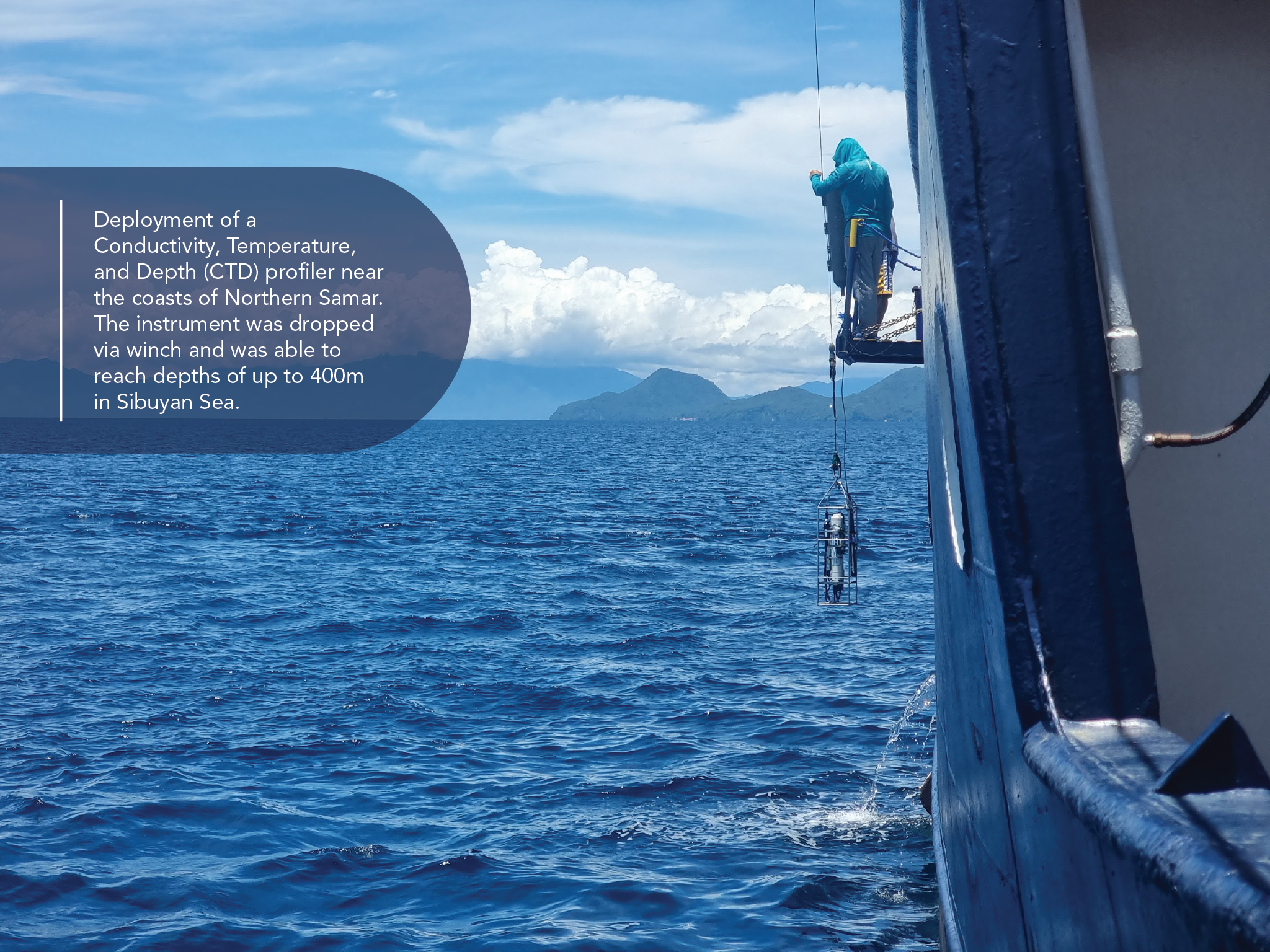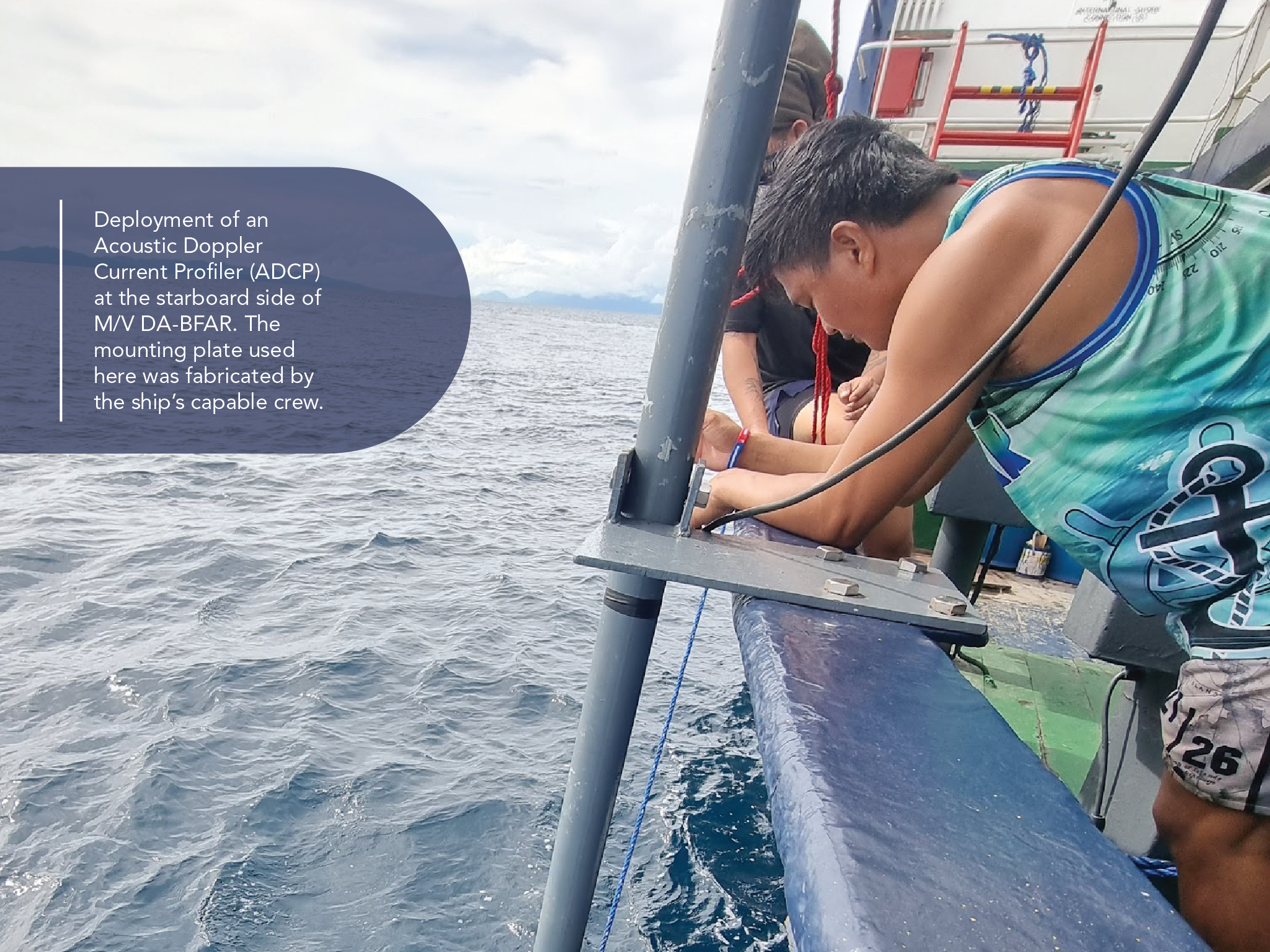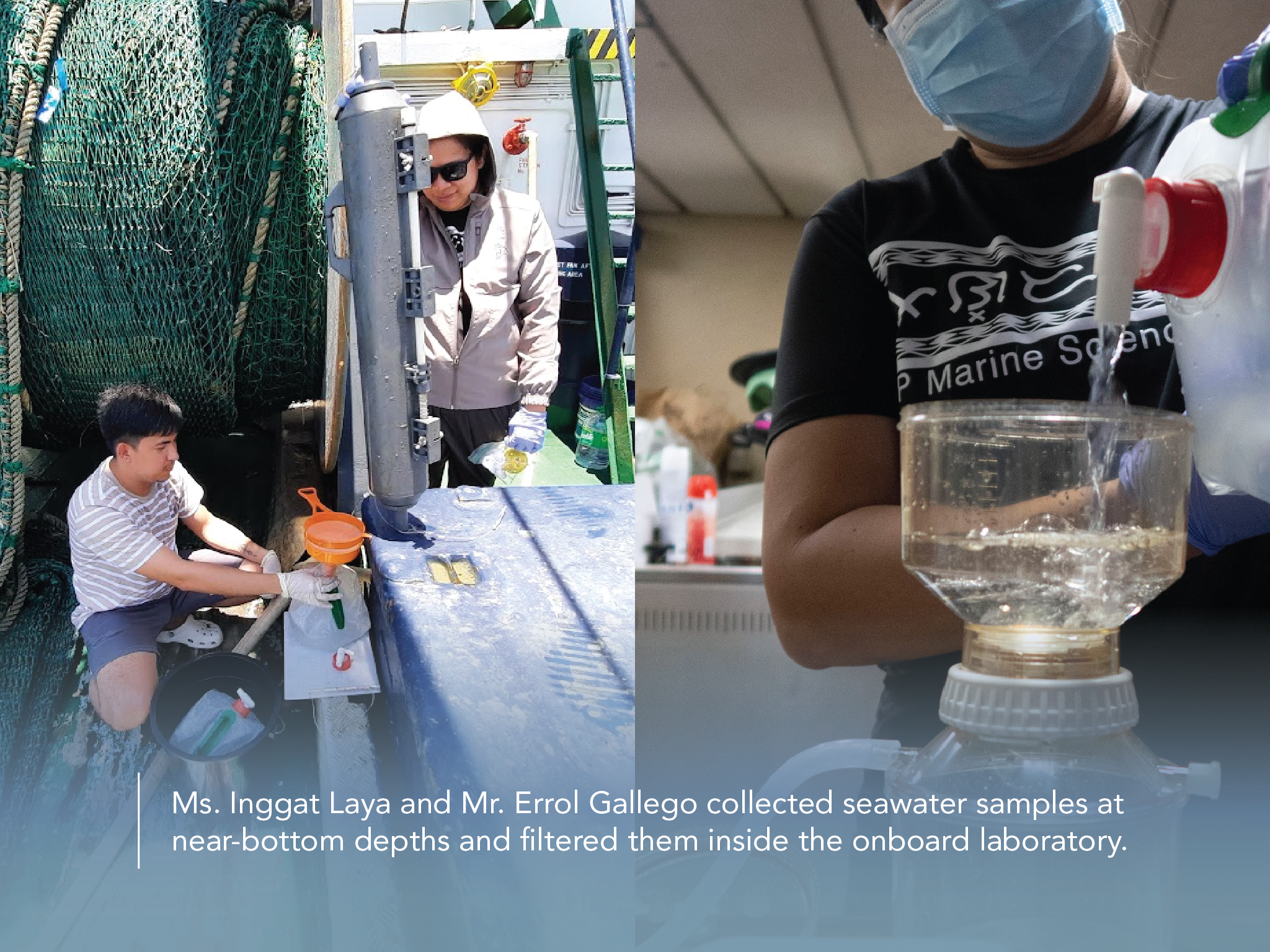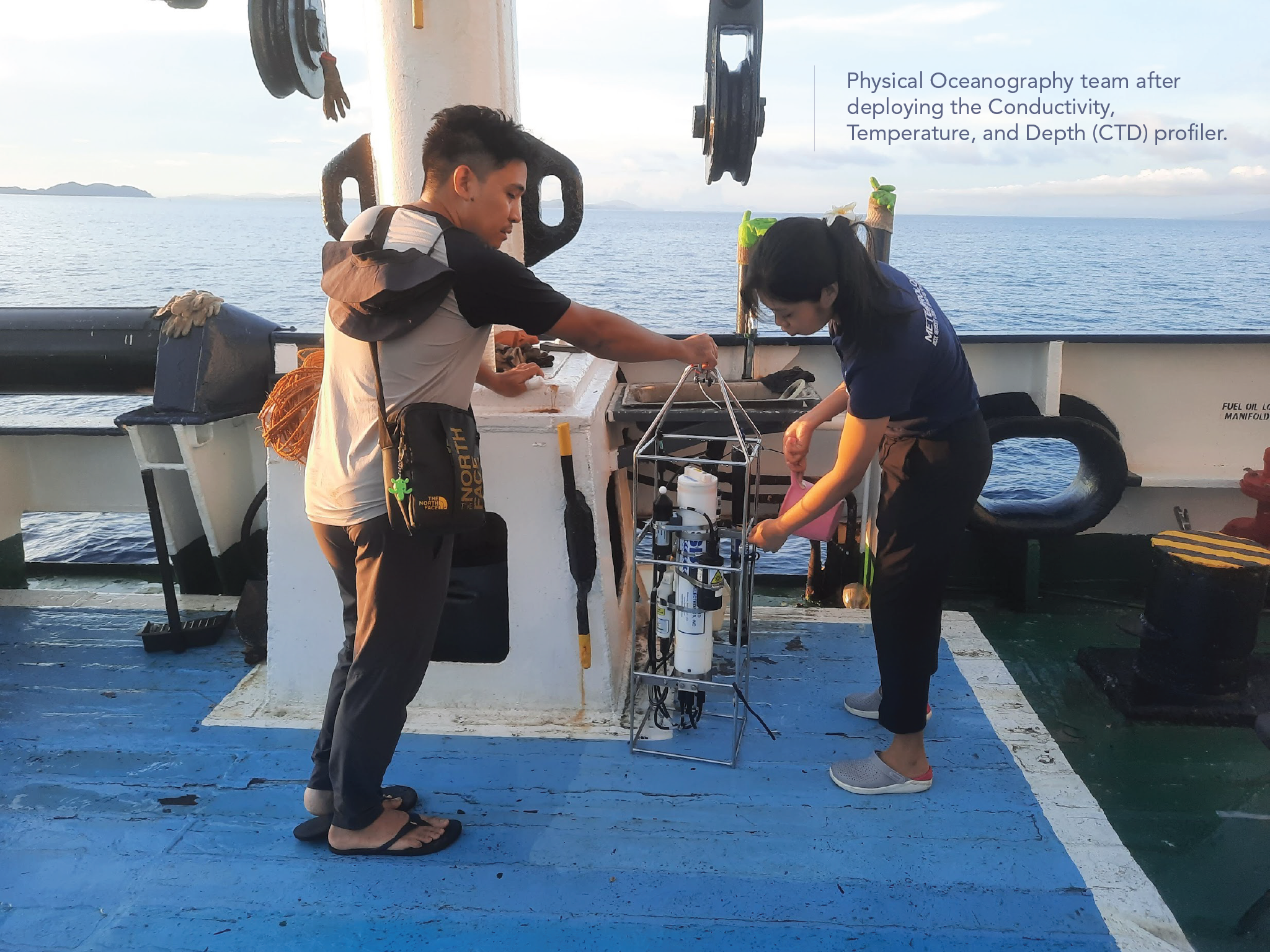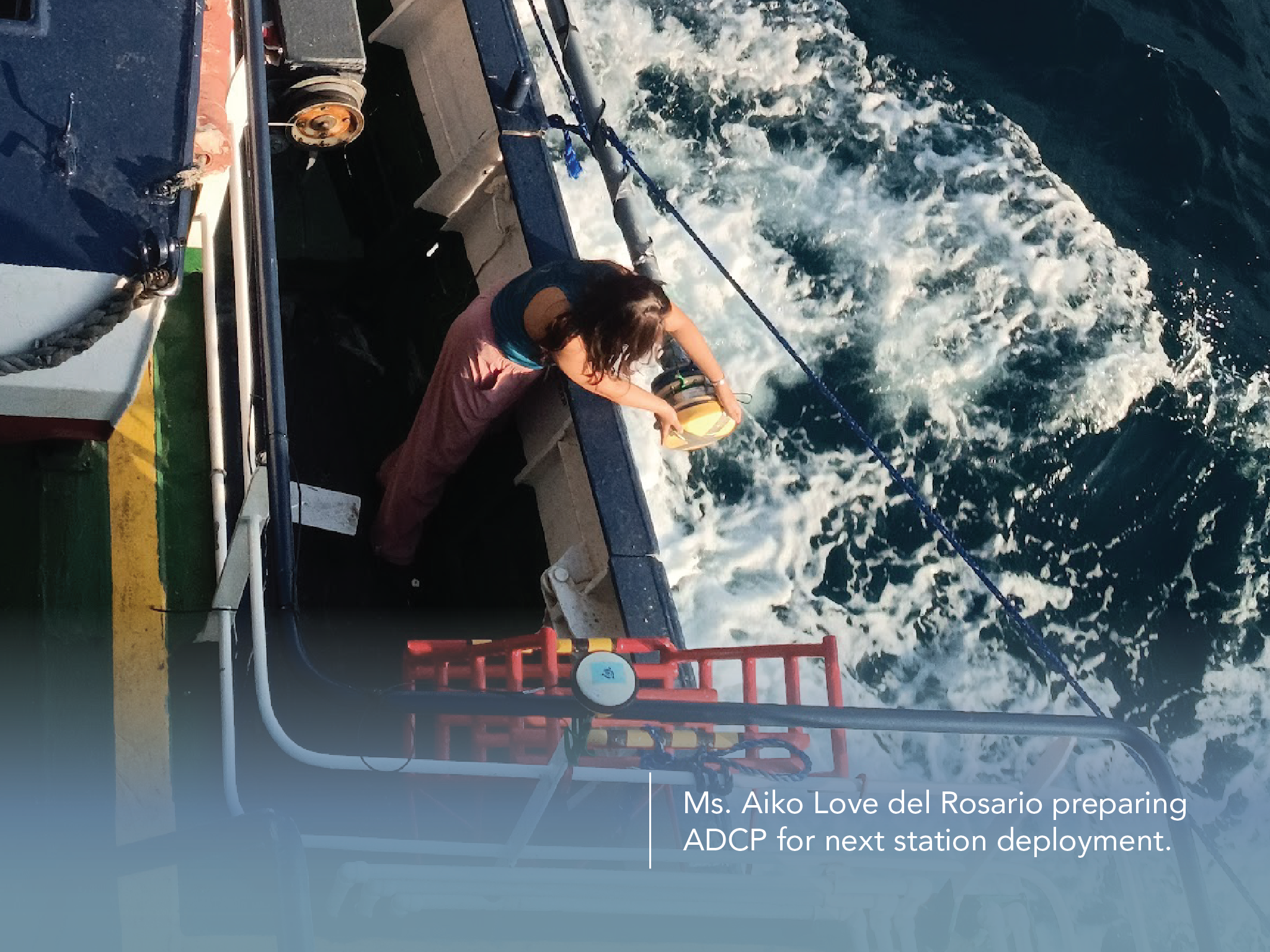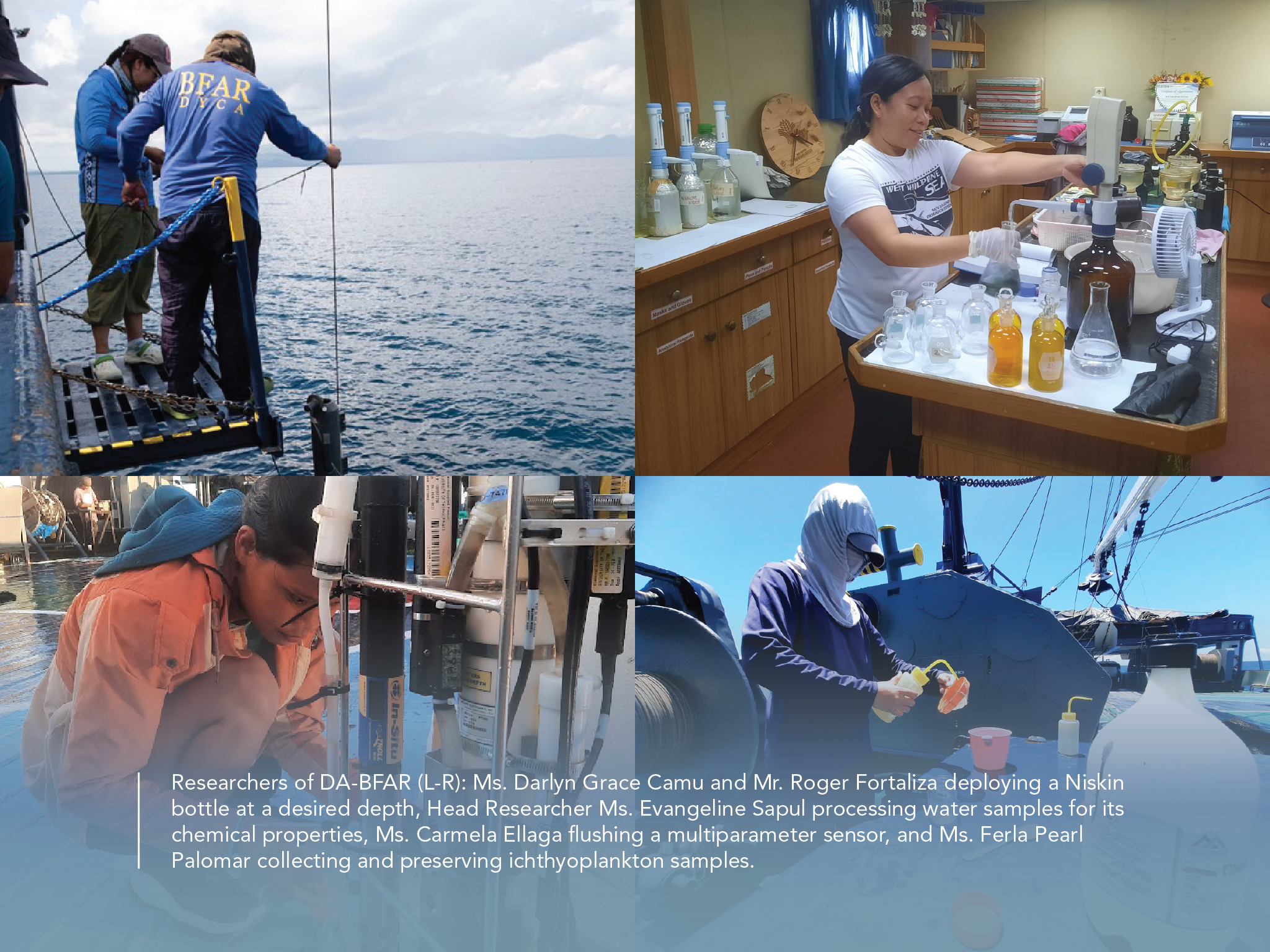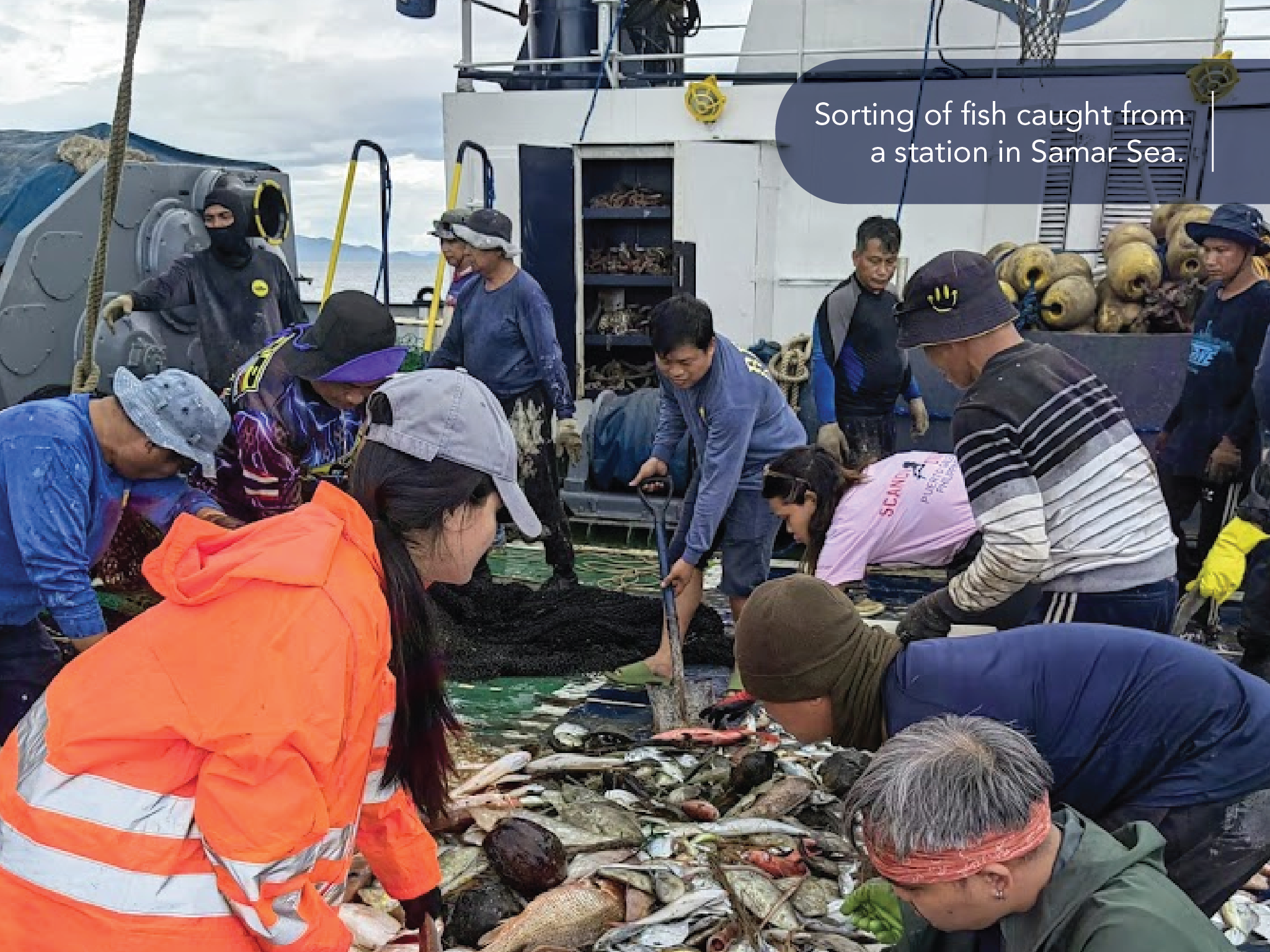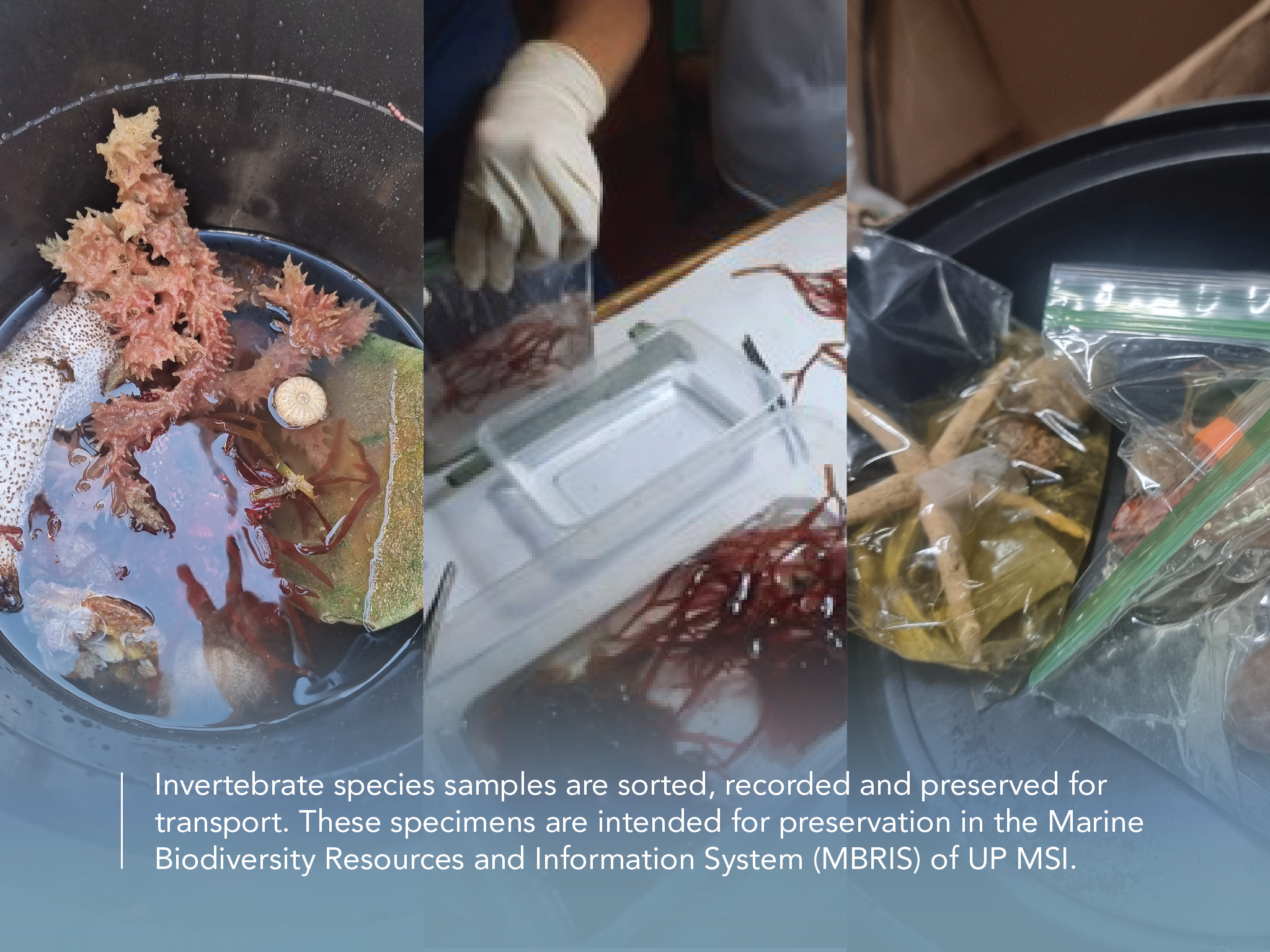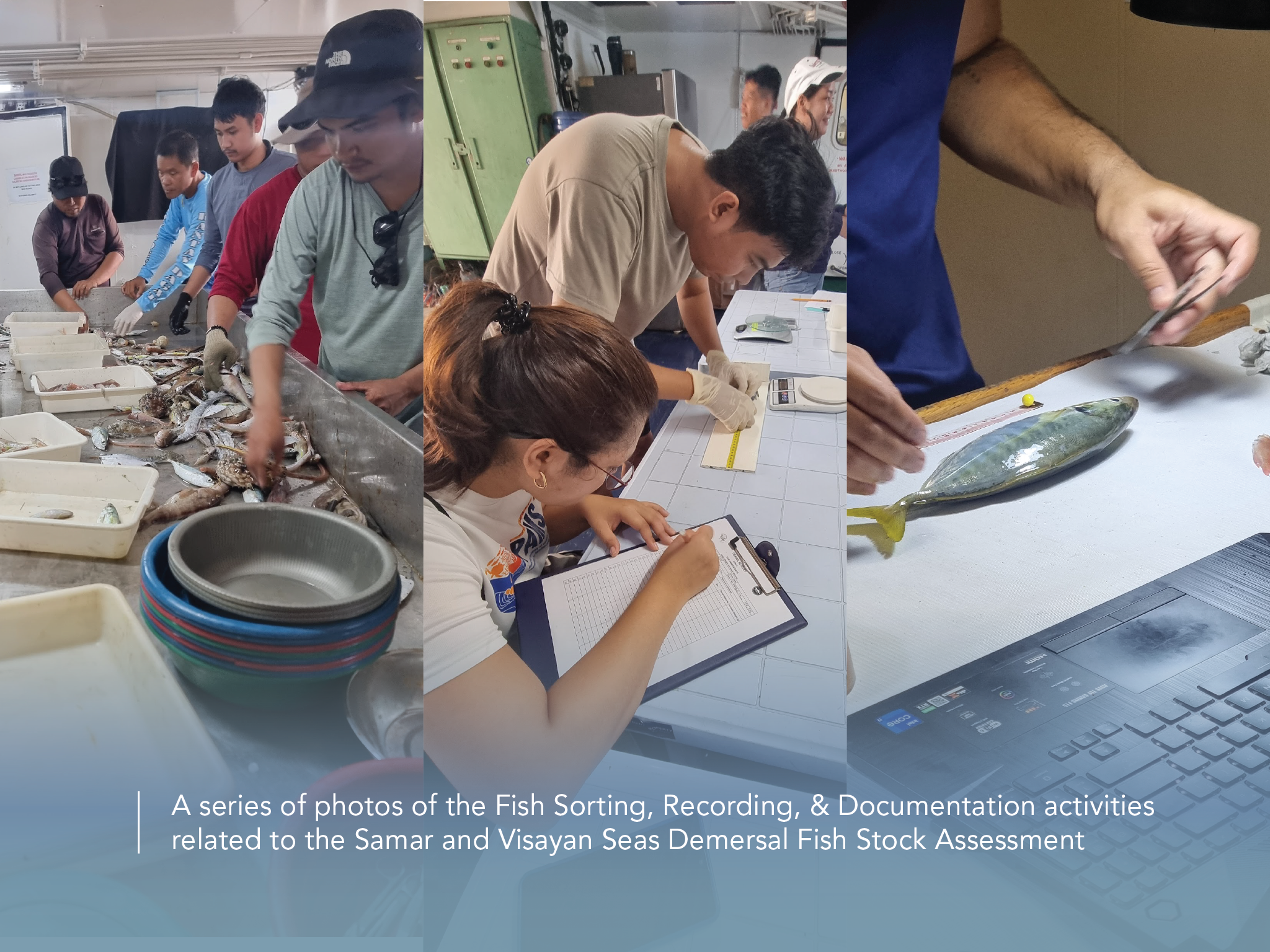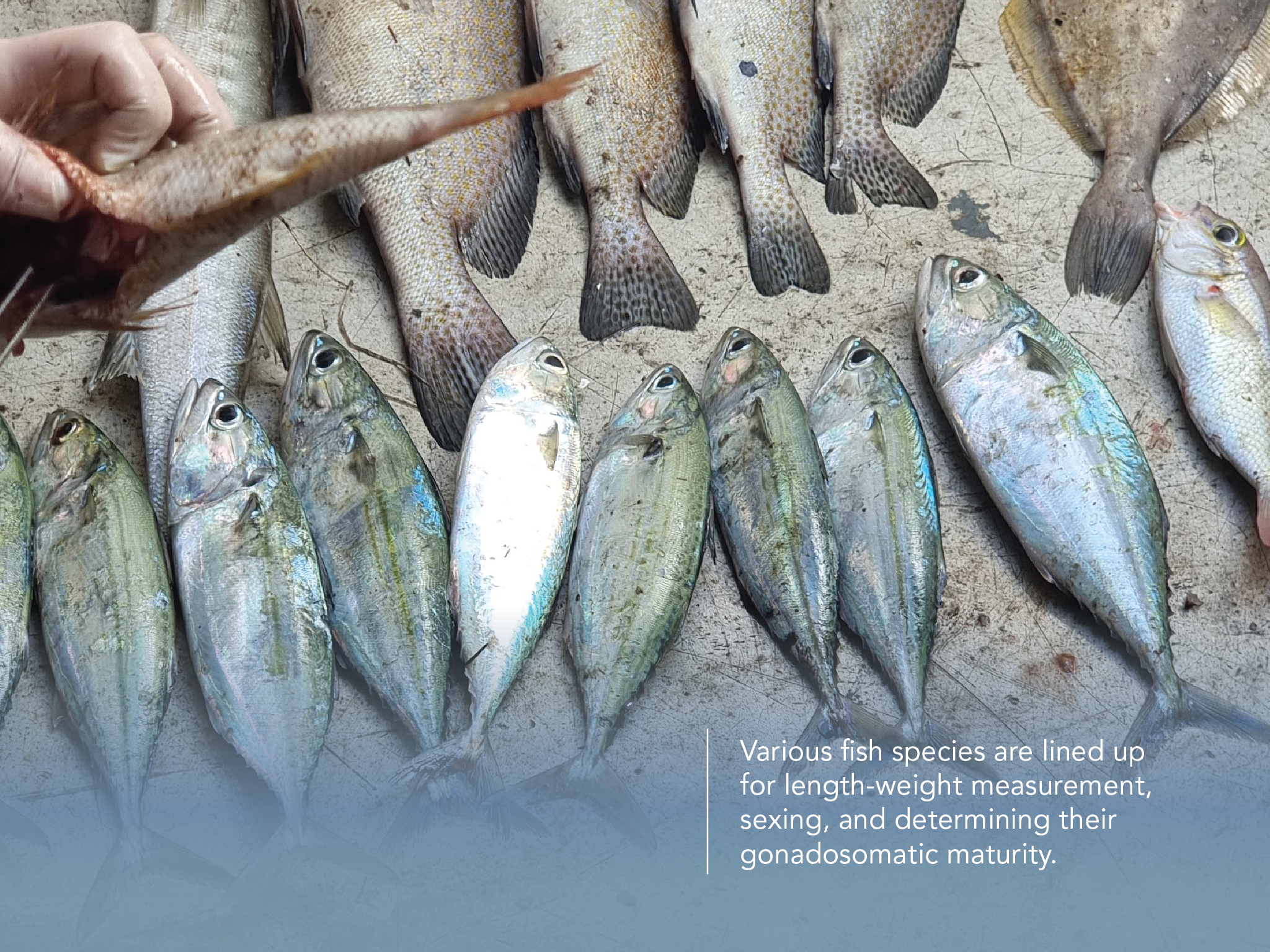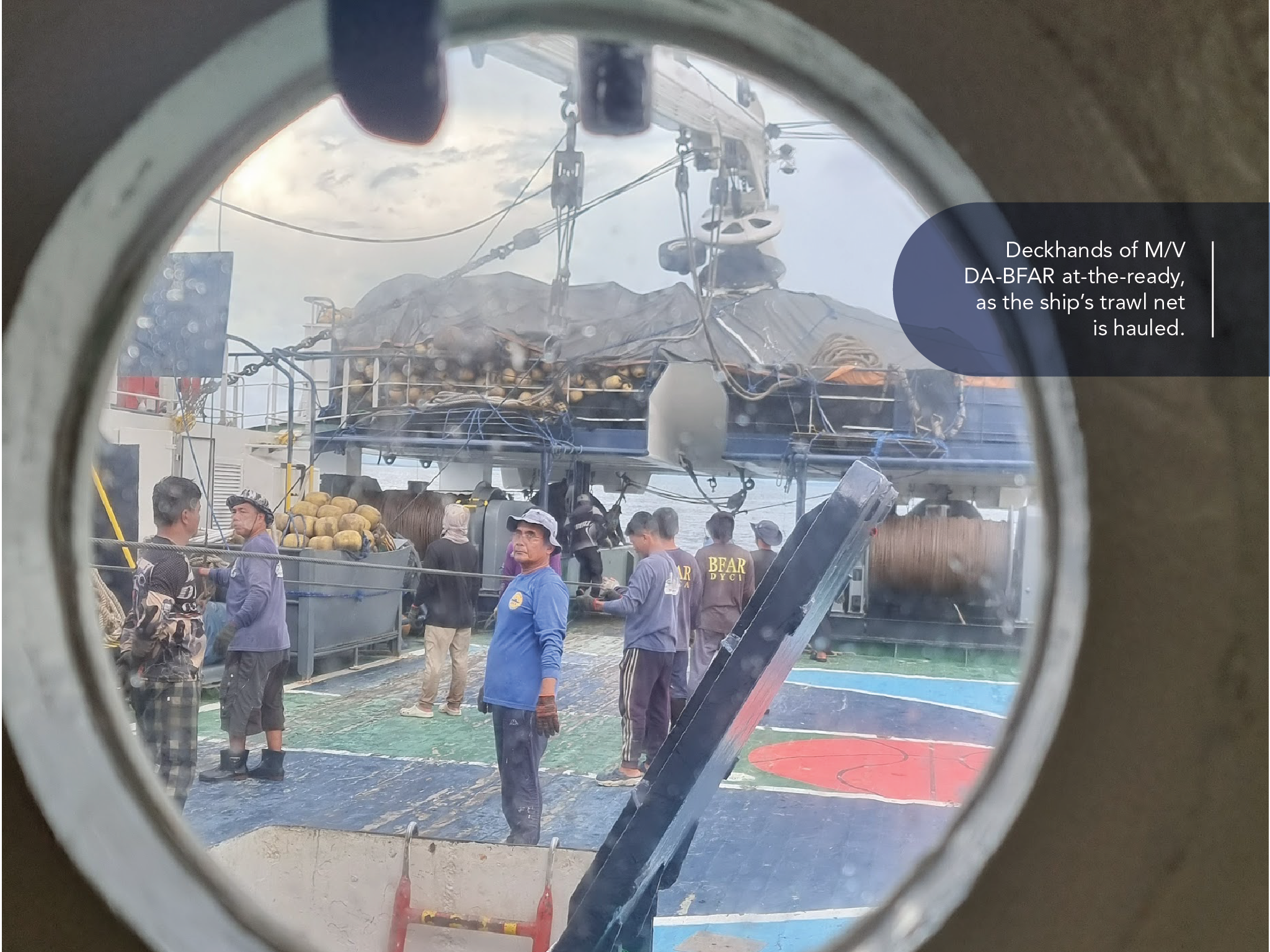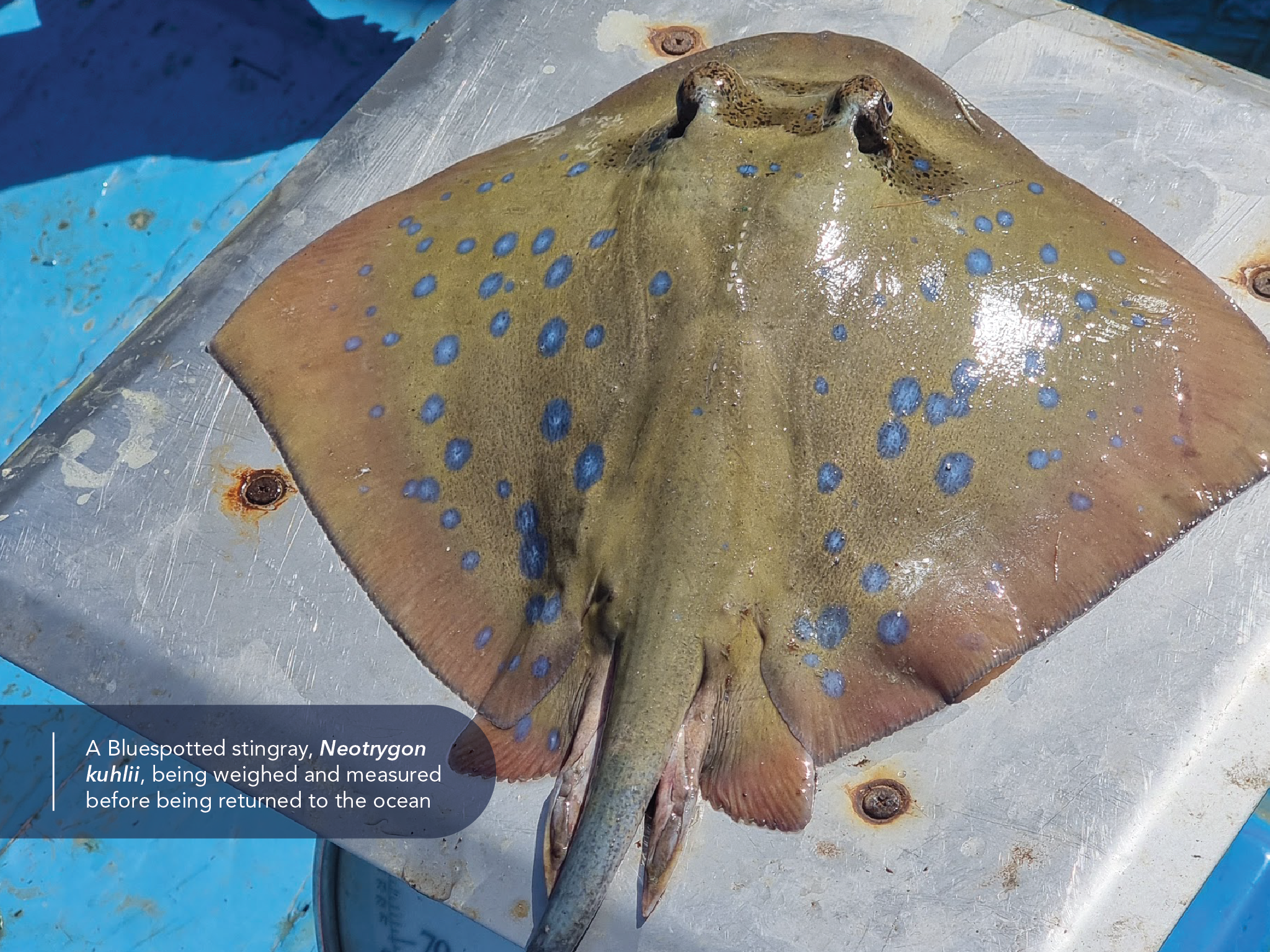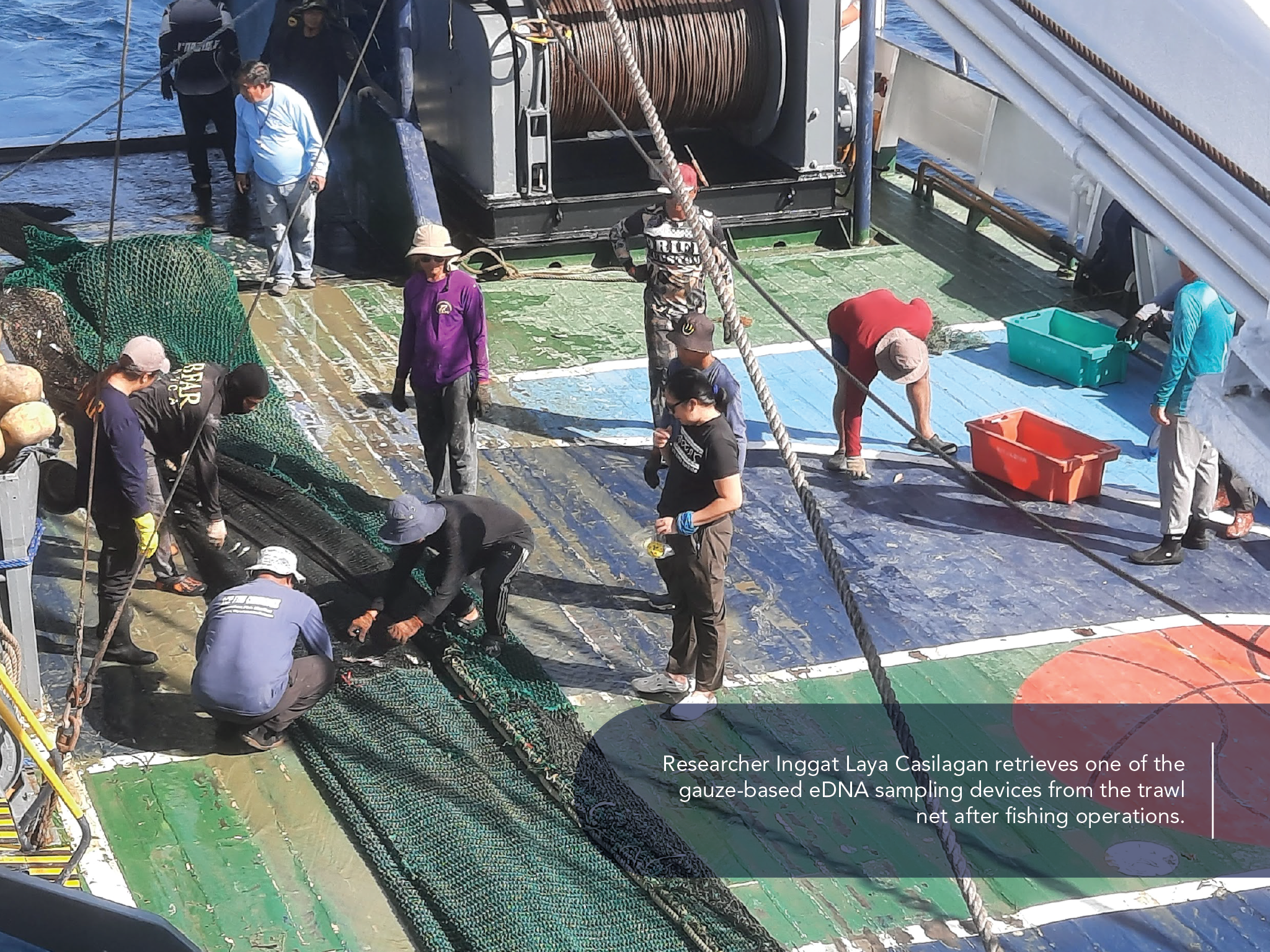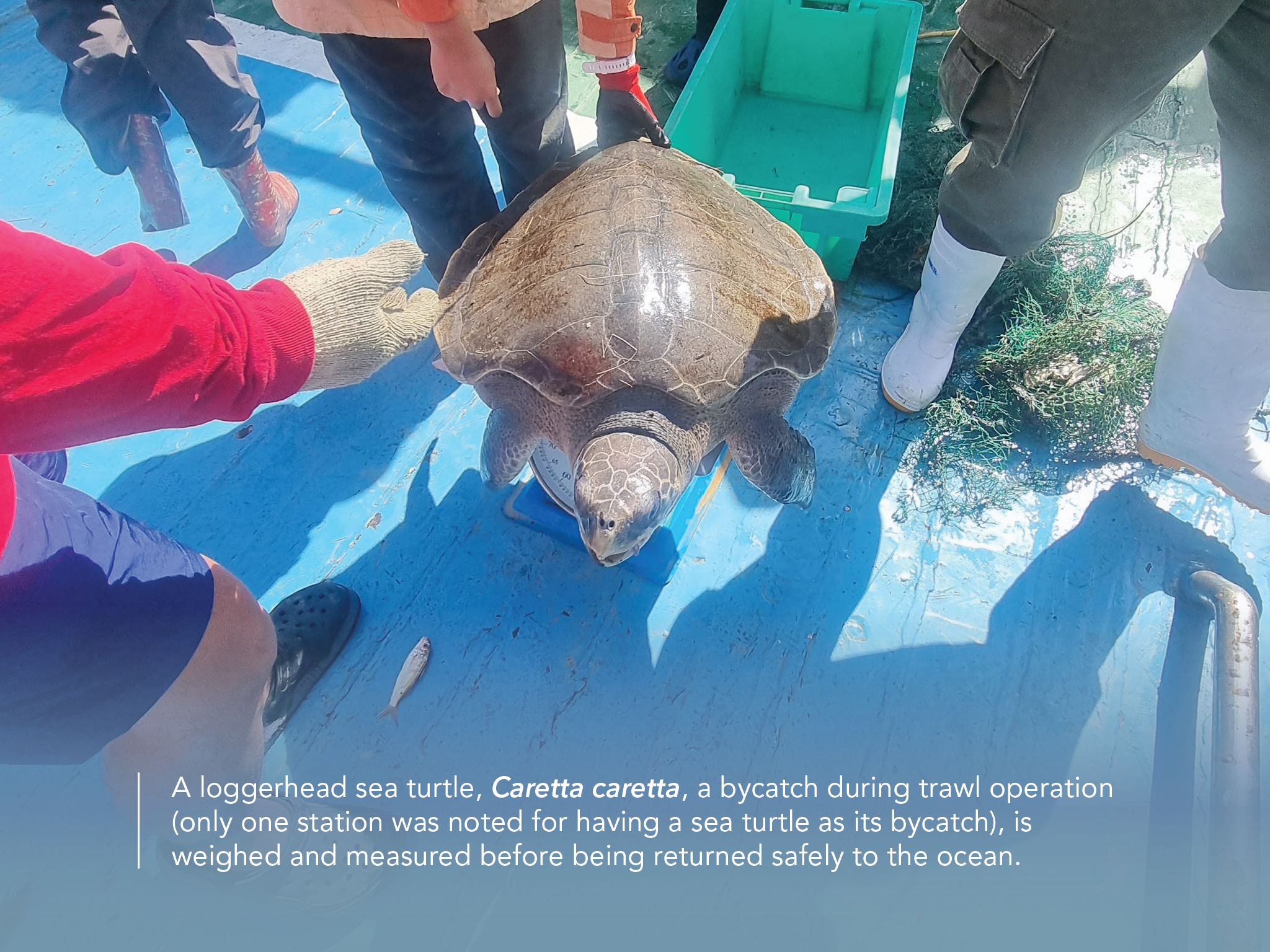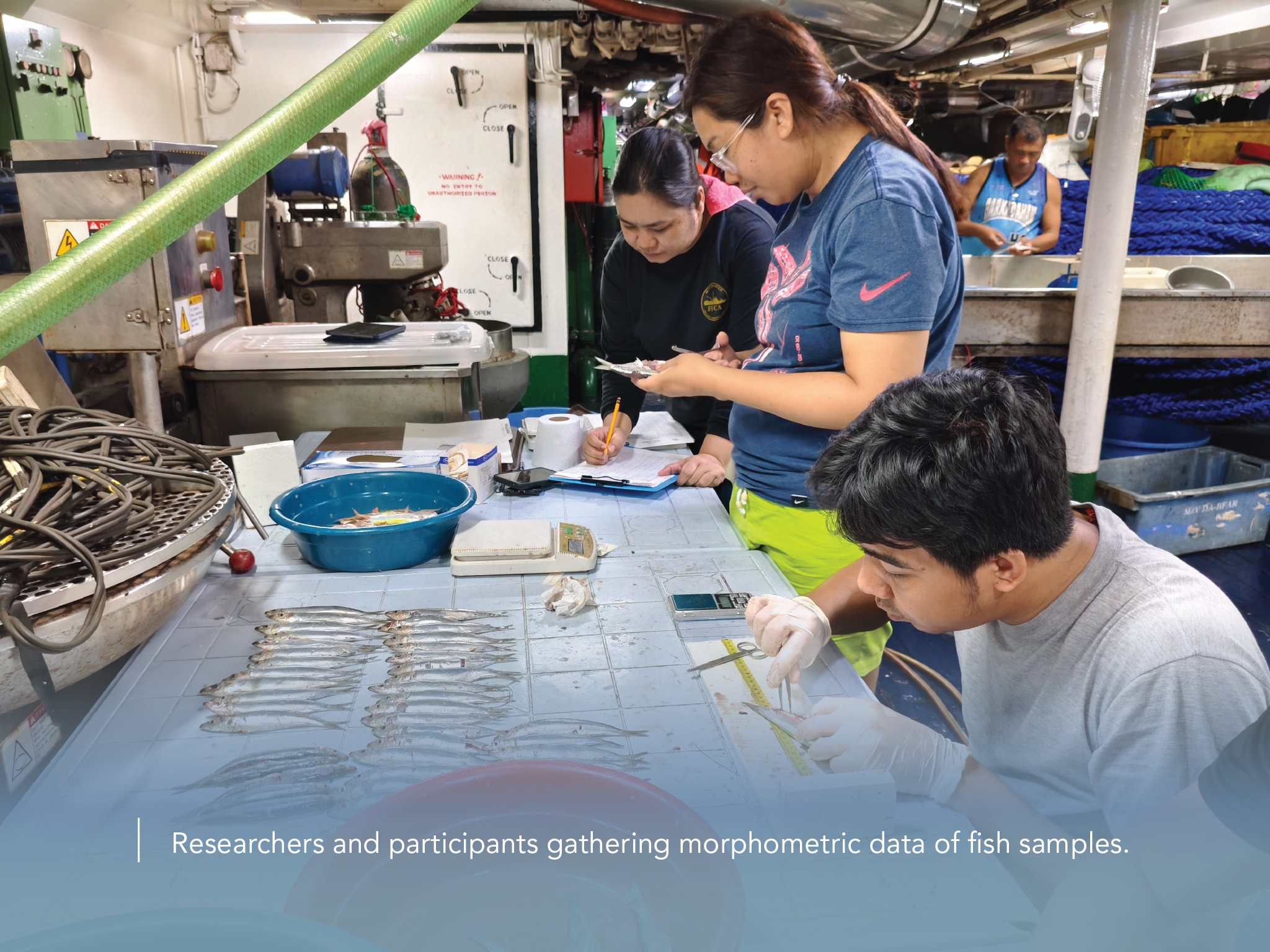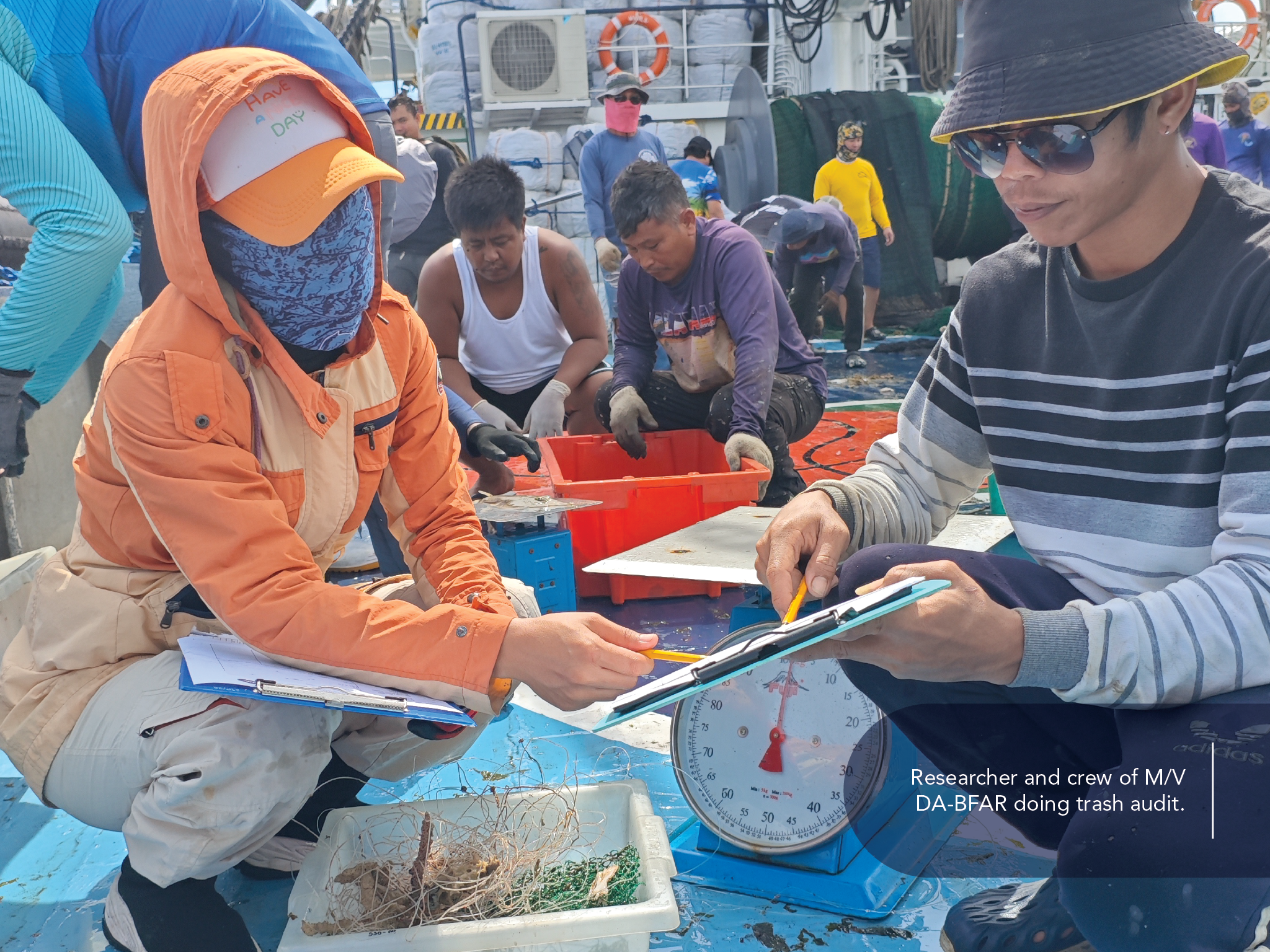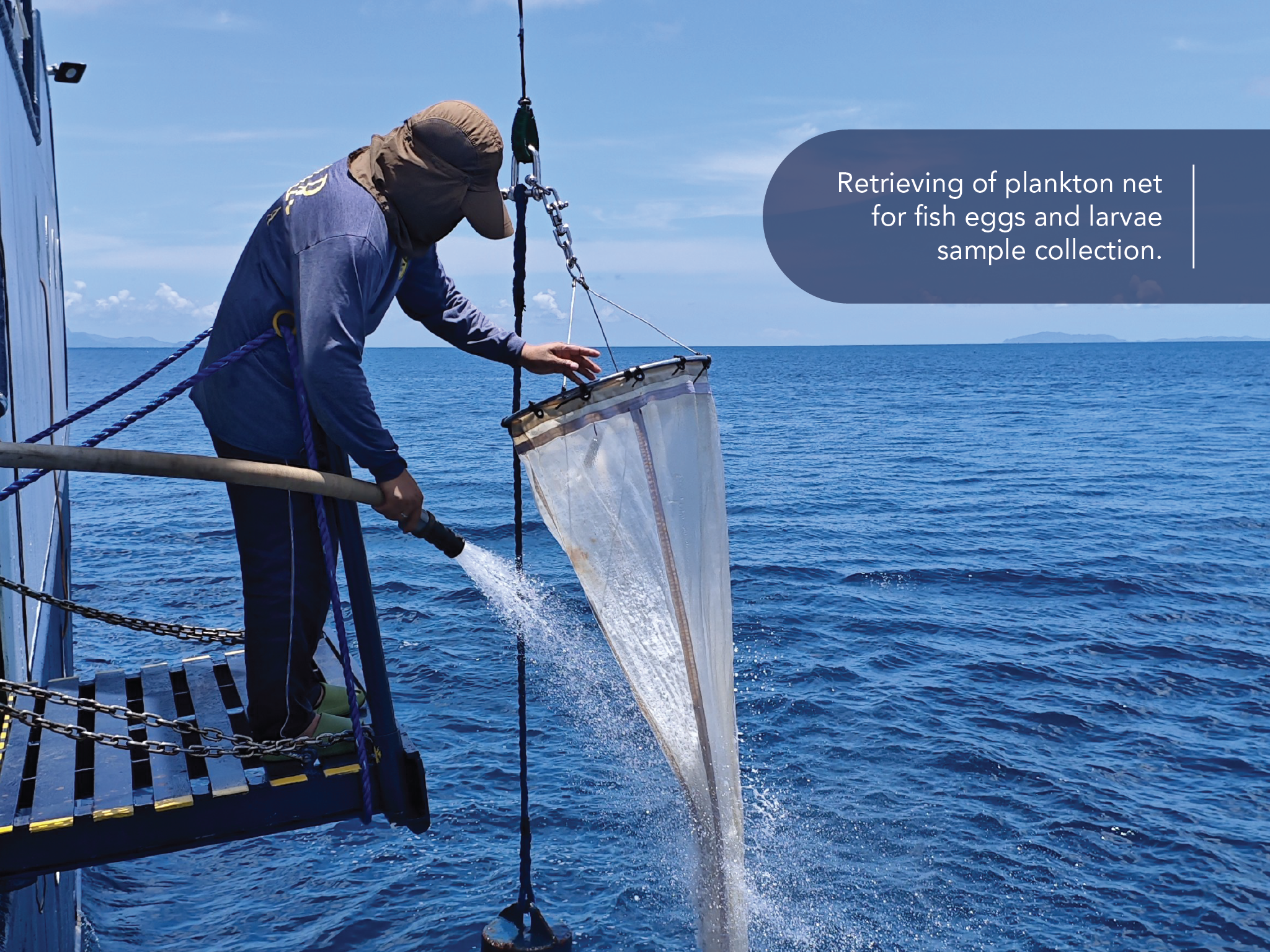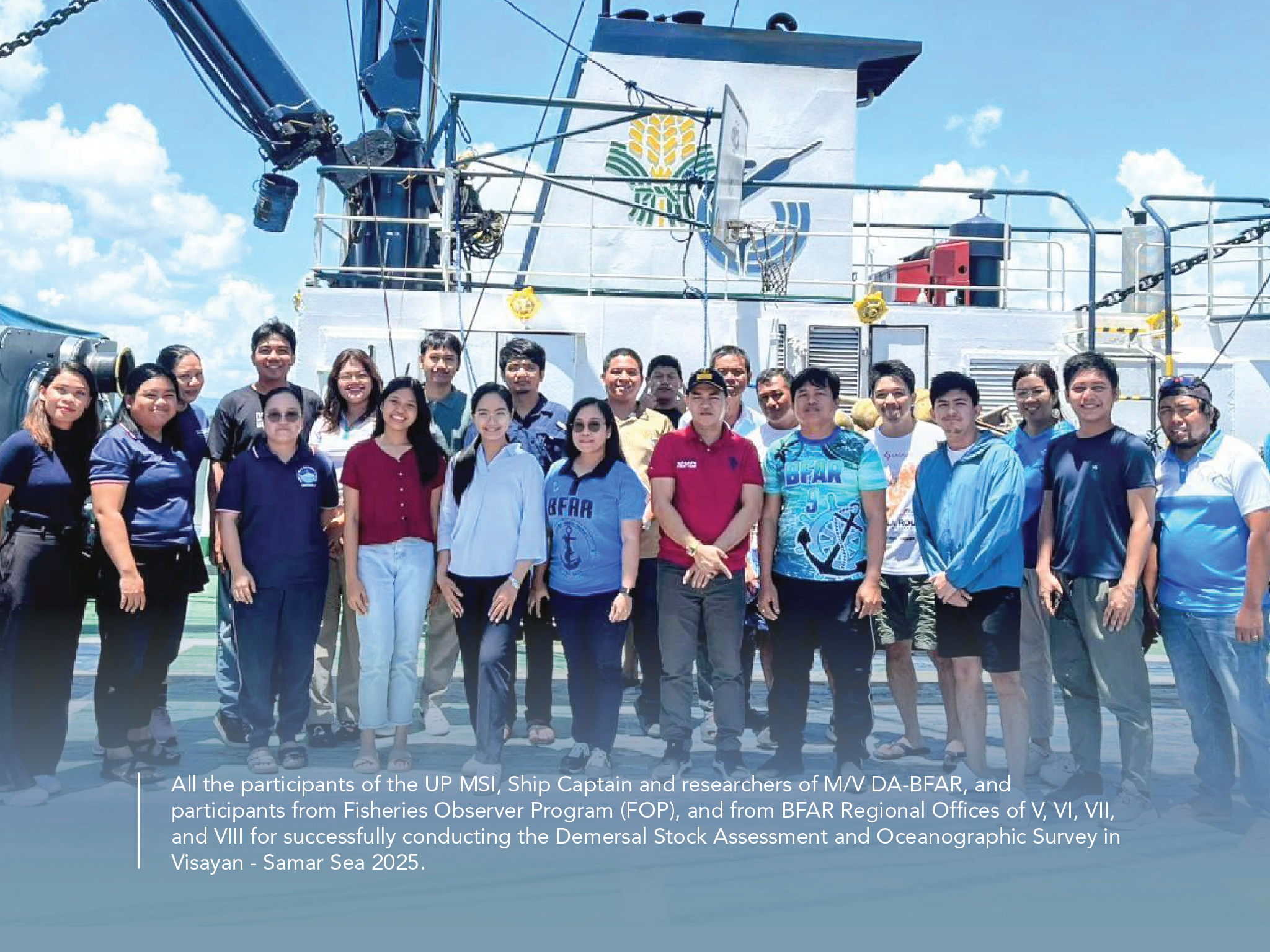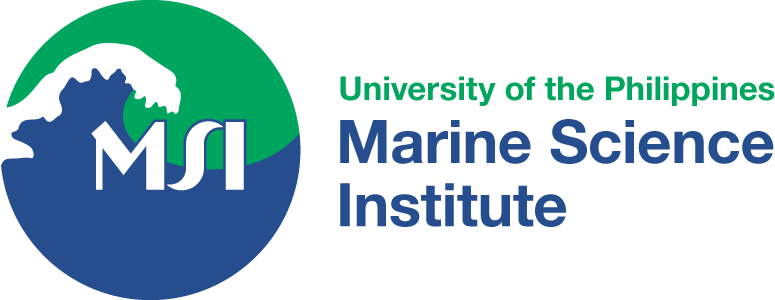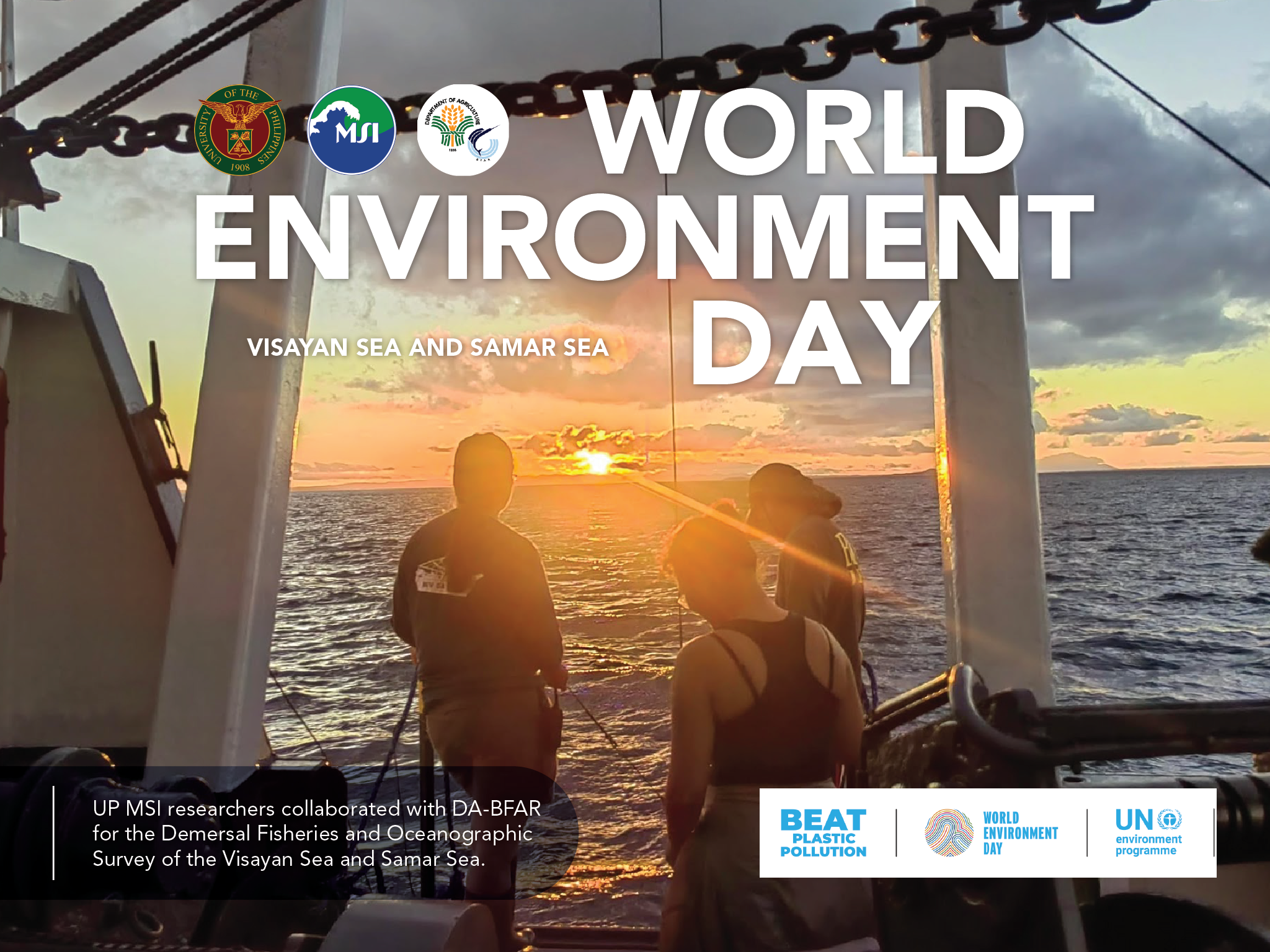UP MSI participates in M/V DA-BFAR Demersal Stock Assessment and Oceanographic Survey in Visayan and Samar Sea
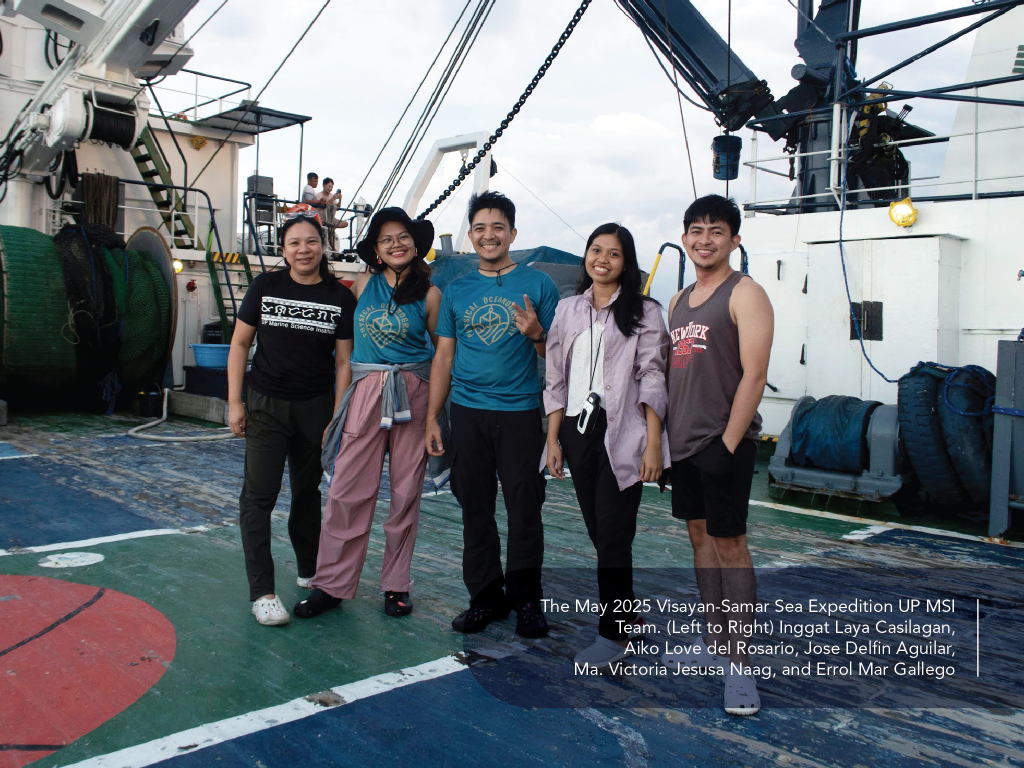
Researchers from the UP Marine Science Institute, in collaboration with the Department of Agriculture – Bureau of Fisheries and Aquatic Resources (DA-BFAR) research vessel, M/V DA-BFAR, participated in the recently concluded Visayan and Samar Sea Demersal Stock Assessment and Oceanographic Survey on board M/V DA-BFAR from May 2 to 12, 2025.
The stock assessment and oceanographic survey led by the M/V DA-BFAR research team is a critical component of BFAR’s National Stock Assessment Program (NSAP), which aims to provide essential scientific data for the sustainable management and optimal utilization of the country’s aquatic resources. The survey focused on Demersal Fish Stock Assessment, where researchers facilitated the collection of data on species present at each station, including sorting and recording of their corresponding length-weight, sexing, and their gonadosomatic maturity.
The survey also involved comprehensive data collection to enhance understanding of the biological and chemical composition of the Visayan Sea. The team gathered water samples for chemical oceanography and conducted ichthyoplankton analysis to examine the sea’s ecological health.
The team from the Physical Oceanography Laboratory, led by Aiko Love del Rosario, with research assistants Jose Delfin Aguilar, and Ma. Victoria Jesusa Naag, conducted sensor deployments to collect oceanic physical data within Visayan, Samar, and Sibuyan Sea. The in-situ measurements are taken for validation and enhancement of the ongoing model development of the Visayan Sea. This work is part of the DOST-PCAARRD-funded ViSMO (Visayan Sea Model for Operational Oceanography) project, co-led by Dr. Cesar Villanoy and Ms. Aiko Love del Rosario.
PhD student Inggat Laya Casilagan, with assistance from Errol Gallego, of the Marine Molecular Ecology and Evolution Laboratory, collected eDNA samples to optimize protocols for sample collection, preservation, and metabarcoding, focusing primarily on scallops as part of her doctoral research. In addition, they documented and preserved trawl by-catch, i.e. invertebrates and macroalgae. Further laboratory processing will focus on refining DNA extraction methods and testing new markers for scallop monitoring.
These combined efforts represent a comprehensive approach to oceanographic research, integrating physical, chemical, and biological data to deepen our understanding of the dynamic marine environment of the Visayan Sea.
